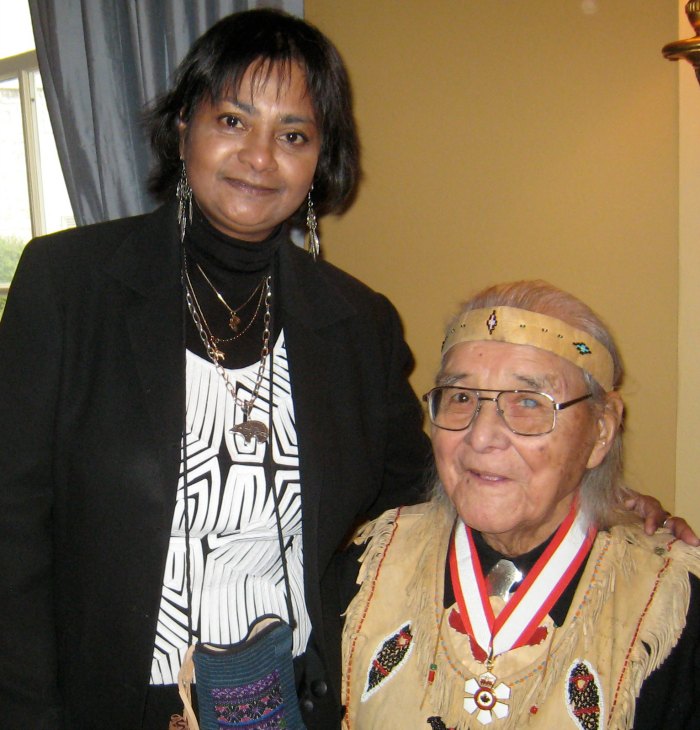Romola Vasantha (Thumbadoo) Trebilcock

I am of East Indian ancestry, was born in South Africa, and have resided in Canada since 1970, earning degrees in English Literature at McMaster University (BA Hons and MA). I worked extensively for the federal government, chiefly within the criminal justice system (federal corrections, Aboriginal justice and restorative justice), for over twenty-five years. Over the past seventeen years, I have served as voluntary coordinator of the Circle of All Nations. I also serve as volunteer director with the Wolf Project, which is dedicated to honouring efforts to promote racial harmony. I have written two books on the work of William Commanda and have published a photo journal on my kayaking explorations of Bitobi Lake, Quebec, viewing environment in part through the lens of indigenous wisdom, reflexivity, subjectivity and inter-subjectivity. I propose to integrate my past work, volunteer and educational background in my doctoral examination of William Commanda’s Circle of All Nations discourse.
I am presently engaged in doctoral studies in geography and cybercartography at Carleton University, inquiring into the contemporary relevance of the environmental stewardship work and legacy of William Commanda (late Algonquin Elder, 1913 – 1911; Officer of the Order of Canada, carrier of Sacred Wampum Belts, holder of two honorary doctorate degrees, and a Key to the City of Ottawa); this includes his efforts to challenge colonization and historical oppression of Indigenous voice, and advance Indigenous awareness, environmental stewardship, racial harmony, and peace building through a process of inclusion and reconciliation in his Circle of All Nations work. This work entailed the creation of a global eco-community linked by his unshakeable conviction that in a very fundamental way, as children of Mother Earth, we all belong together, irrespective of colour, creed or culture, and that recognition of relationship with Earth, fundamental to Indigenous thought, is critically important to a contemporary understanding of environmental challenges and global connections.
I am exploring whether and to what extent an analysis of the work, thoughts and influence of William Commanda on environment, relationships and related matters can contribute to a great contemporary integration of his Anicinabe approach to knowledge generation in academic discourse on these issues. In part, this examination entails the creation of a cybercartographic atlas to map historical and emergent data on his work.